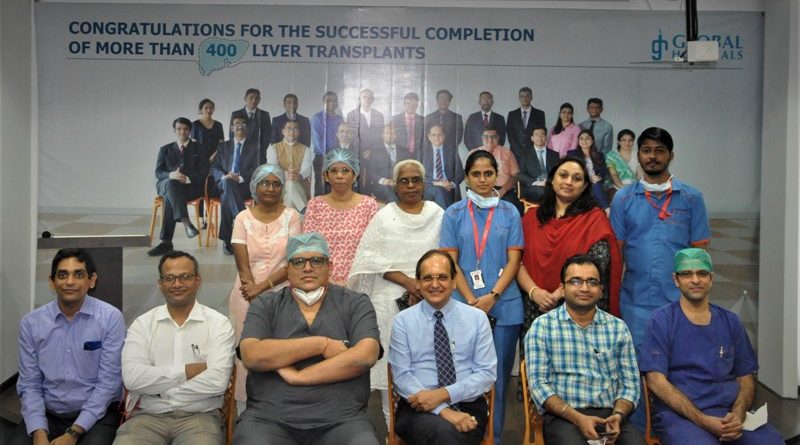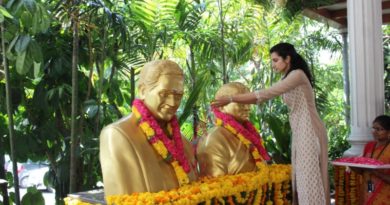Global Hospital, Mumbai team first to perform more than 400 liver transplants in Western India celebrates 6 years anniversary
The liver transplant team at Global Hospital, Mumbai, which is the leader in liver transplantation in Western India achieves a significant landmark with the completion of more than 400 transplants, in a span of 6 years. The transplants were performed by the most comprehensive and experienced team with success rates comparable to the best centers in the world. A celebration for this was held at Global Hospital on Friday.
The team has several first in Western India to their credit such as the first simultaneous liver-kidney transplant, first swap (pair-exchange) liver transplant, first ABO-incompatible liver transplant, first dual lobe liver transplant, and first auxiliary liver transplant performed in Western India.
One of the critical aspects of a liver transplant is a thorough evaluation and appropriate selection of patients and donors to ensure their suitability for a safe operation. The team has 100% a track record for donor safety because of the rigorous processes that are followed to ensure early and healthy donor recovery. In situations where the patient is unable to undergo a transplant because of reasons such as for overweight or incompatible blood group of the donor, the team circumvents these limitations by offering innovative techniques such as dual lobe transplant or ABO-incompatible transplant, which is offered at few centers in India.
The team’s results are also due to the state-of-the-art equipment, instruments, and dedicated ICUs for liver failure patients and liver transplant patients with experienced staff for care before, during, and after the transplant. With advanced monitoring facilities and equipment, the team is able to handle any changes in the patient’s vital parameters and stabilize them during the transplant. Patients with liver failure often require medical stabilization before the transplant and intensive care after the transplant. Using some of the latest protocols for liver failure, several patients have recovered from liver failure in the ICU without a transplant.
The team has also performed the largest number of pediatric liver transplants in western India. In children, a liver transplant is often required for genetic diseases leading to bile duct not being formed properly or liver cancer. A liver transplant could be challenging in children because of the small size of blood vessels and structures that need to be joined during the surgery.
Dr. Ravi Mohanka, Chief Surgeon and Head of Department, Transplant and HPB Surgery, Global Hospital, Mumbai said “Most commonly patients undergoing liver transplants were about 45 – 55 years old requiring transplants due to end-stage liver disease due to hepatitis B or C infection, alcoholic liver disease, fatty liver disease, or liver cancer. The oldest patient to receive a transplant at our center was 80-year-old at the time of transplant and doing well at 3 years now. We have also performed a transplant on a baby weighing only 4.7 kgs, the lightest in western India”.
Dr. Samir Shah, Head, Department of Hepatology, Liver Intensive Care and Transplant Hepatology, Global Hospital, Mumbai said “At the Global Mumbai, we have been able to fulfill an unmet need in western India of a center of excellence offering complete liver care. The hospital also offers fellowship training programs in liver transplant, hepatology and liver anesthesia, and critical care”.
I would like to congratulate all members of the transplant team who have contributed to the development of the most comprehensive liver transplant program in Western India. The multi-disciplinary approach has enabled the team at Global to offer 360-degree liver care to patients. Reaching this significant milestone is a reflection of incredible teamwork, passion, and dedication of the team who care for our patients each day. Being the leader in organ transplant in Western India in terms of clinical outcomes and in volume places a responsibility on us to bring the latest techniques enhanced skills and to maintain our patient care on par with international standards, concluded Dr. Vivek Talaulikar, Chief Executive Officer, Global Hospital, Mumbai.




